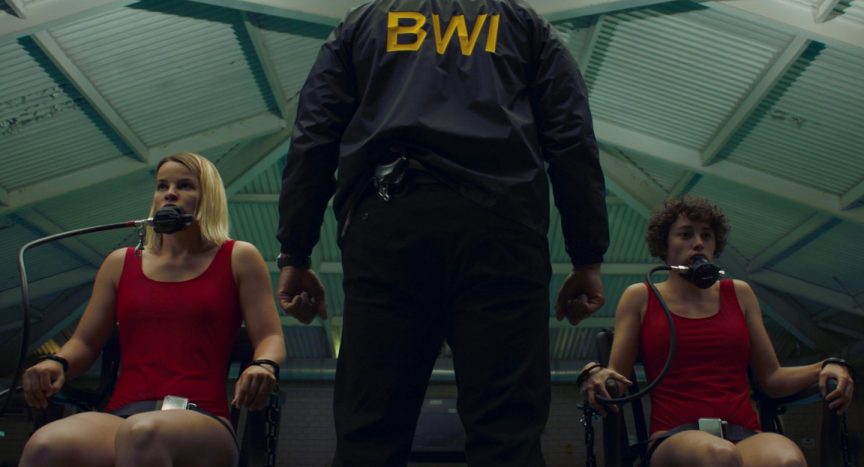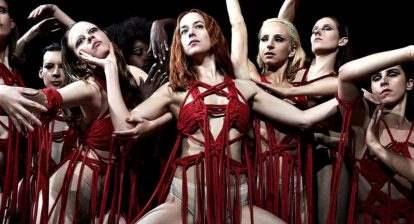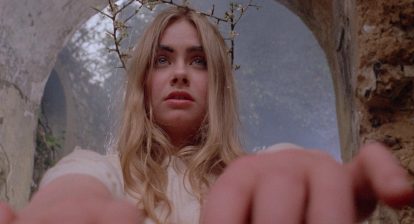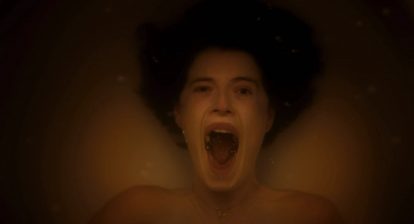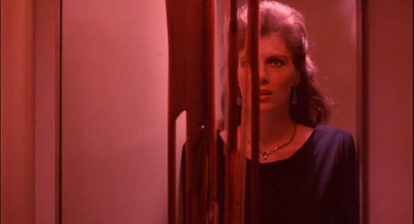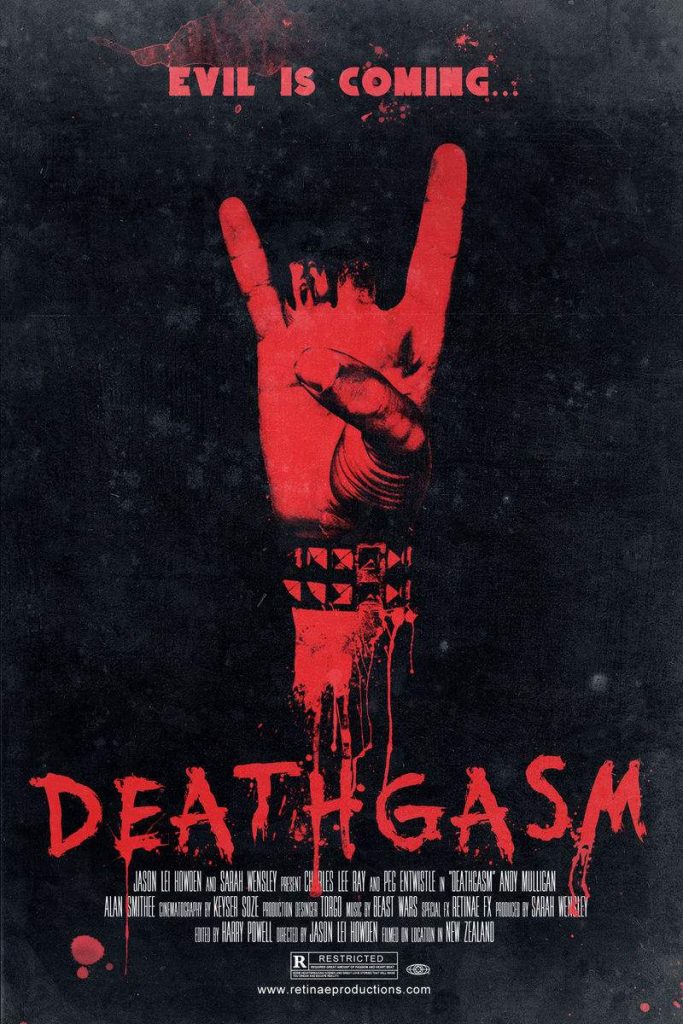Witch Hunt, the sophomore feature from writer-director Elle Callahan (Head Count), opens with two definitions of its title. The first is the traditional one, while the second considers how the term has mutated for modern usage. Here, though, the witch hunts are literal. There are witches living among us and they are either being forced to exist in secret, without the luxury of fair and equal treatment, or being quite literally burned at the stake as the opening sequence demonstrates – a title card notes “present day” in a dark, sharp stab at humor.
Witchcraft is extremely popular right now, so the timing is perfect for this style of super feminist take on the culture. Neil Marshall’s The Reckoning, which was released a couple months ago, deals with many of the same themes and indeed flirts with similar imagery, but its olden times setting robbed the film of the potential to make a statement about the real-world connotations of treating people as though they are less than. It’s no surprise, then, that Callahan has plenty to say about ICE, via the witch-hunting team BWI, women’s rights and other human rights crises.
Our heroine is Claire (Blockers star Gideon Adlon), a shy teenager who’s just moved to a new town and is trying to fit in with the cool girls at school. Unfortunately, she can’t invite anybody over to her place to hang out since Mom (Lost’s Elizabeth Mitchell) is harboring a witch who’s looking to flee across the border. Claire is blatantly unhappy about having this freak in their home, even when the woman tries to make friends by showing her some cool magic with a ceramic butterfly. “They’re criminals,” Claire argues, to which her mother responds that no, they were simply born this way.
Everything changes when a couple of orphaned sisters, one Claire’s age and the other closer to her twin brothers, are forced to take refuge in the family home. Suddenly, Claire is torn between finding common ground with someone she gradually realizes is just like her, despite their vastly different upbringings, and joining her bitchy friends in continuing to treat witches as second-class citizens. Witch Hunt presents a heightened metaphor for how we become radicalized as teenagers, once the world opens and we realize there are people out there suffering simply because of who they are.
Callahan’s movie is shot like a noir, the rich cinematography by Nico Aguilar and Tommy Oceanak infused with deep, dark colors characterized by evocative blue and green hues. The central family lives right by the wall, which exists in this universe but could still stand to be higher as far as anti-witch campaigners are concerned, hence how they can assist witches fleeing to Mexico (rather than the other way around). Witches are, evidently, treated like immigrants and POC, so it’s unsurprising when Black characters show up to help them in their plight, in a knowing nod to how they’ve historically been treated in America.
Gingers are considered more likely to be witches, which leads to freckle measuring tests that recall the so-called “Jew tests” that were prevalent in Nazi Germany. Likewise, the two girls taken in by Claire’s mother hide in a closet, again recalling the plight of Jews during WWII. Witch Hunt’s most stomach-churning moment, which is understandably also the basis of its marketing campaign, involves the actual floating test that was used back in the day to prove whether women were witches or not.
The image of teenage girls sitting at the bottom of the school swimming pool while burly men time them is a shocking, impactful one. Indeed, it’s considerably stronger than the sequence featuring the woman being burned at the stake, which is easily the weakest image in the movie and yet is also the one Callahan consistently goes back to. There’s so much fascinating detail knitted into the narrative that such a blatant, cliché image isn’t necessary to get her point across. Witch Hunt features a children’s book called We’re Going on a Witch Hunt, so stake-burning seems lame in comparison.
Related: Burn It All Should Be Burned at the Stake [Review]
The film hinges on Claire’s moral quandary – does she have some hidden connection to witches herself, or does she simply feel different to her peers and feel empathy towards them as a result? – and Adlon plays it beautifully. The young actress made her mark as a queer fantasy nerd in Blockers and there’s a hint of burgeoning sexual experimentation here too, between Claire and Abigail Cowen’s Fiona, but it’s left tantalizingly vague. More importantly, the young women find common ground through the bonds of female friendship.
Claire utilizes Thelma & Louise to clue Abigail into the workings of the modern world, and there’s a cool callback to the classic film in Witch Hunt’s final moments, while the witches’ powers, in general, are very delicate and feminine. The rampant, unchecked misogyny on display throughout is teeth-grindingly infuriating, particularly with everything going on in the world right now, but Callahan doesn’t make her male characters mustache-twirling villains – just as in real life, they’re quietly confident, powerful types utterly convinced of their own righteousness.
As a horror movie, Witch Hunt contains some spooky moments and decent jumps. It’s more successful than Head Count, which flailed once the central mystery was revealed and suffered as a result of its own aspirations to being an important indie movie above all else, which read as pretentious and misjudged. Callahan’s follow-up is wildly more accomplished and shows an impressive amount of growth. Her premise is strong and well-considered, the world she draws is uncomfortably similar to our own, and she coaxes convincing performances out of her young cast.
Movies like Witch Hunt are difficult to recommend because plenty of viewers remain reluctant to learn a lesson from their genre fare. But, just like Claire herself, if you open your mind up, you’ll find there’s plenty to enjoy about being radicalized. Otherwise, this is an entertaining, involving horror movie regardless.
WICKED RATING: 7/10
